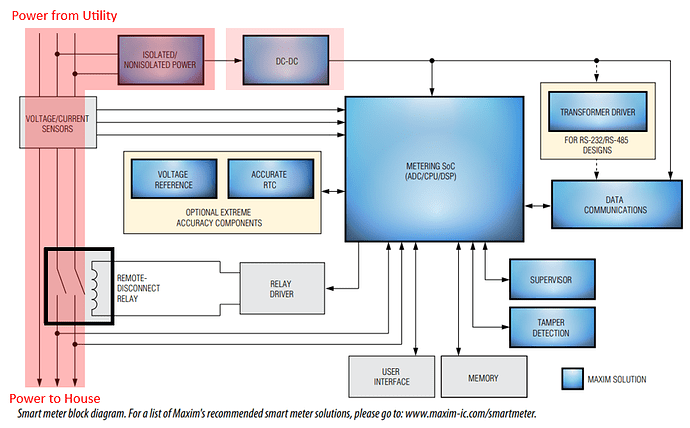@Bahri: Your additional costs at $7.50/month for the analog meter seem reasonable. It’s still unfair, even at that price. No one should have to pay extra for a safer contraption.
The analog’s are called “Legacy Meter” here.
The only people who are permitted to have “Legacy” meter, are original owners of the houses who were living in those houses when Smart Meters were installed some years ago, and who are willing to pay $32.40/month extra. Once ownership changes, the “Legacy Meters” get replaced with Smart Meters. At that point, the new owner does not have an option to get an analog.
People who have previously chosen to the Radio turned “off” on the Smart Meter for an additional $20/month, can do so, but anyone who has not previously chosen to do that cannot use this option.
BC Hydro has produced a 242-page terms and conditions document that no one reads, and these charges are laid out on page 67. https://app.bchydro.com/content/dam/BCHydro/customer-portal/documents/corporate/tariff-filings/electric-tariff/bchydro-electric-tariff.pdf
Here is some wording from their web site about the meter options, that states that people in BC have almost no options (except for those who were on the ball from the beginning when the smart meter installations were underway in 2011, and who have the money to pay):
Home › Accounts › Electricity rates & energy use › Electricity meters › Meter types, access, and replacements
Meter types, access, and replacements
Electricity meters are the end point of the large and complex electricity system that serves your home and businesses.
The meters measure your electricity use for billing. And to make sure you’re billed correctly, they must pass strict accuracy tests throughout their lifecycles.
Our standard meters are smart meters
In 2011 we invested in our metering system, installing smart meters for 99% of our customers. These meters are our standard equipment. They measure detailed information about the flow of electricity and power you use and create a communications network to send this data back to us automatically each day.
Smart meter fees
- Set-up fee: none
- Monthly fee: none
Smart meter features
- Automatic meter reading
- Next day consumption data available in your MyHydro account
- Streamlined move-in/move-out process
- Automatic outage detection
Other meter types
A radio-off meter is a smart meter that’s been adjusted so that it doesn’t communicate wirelessly. If you’re part of the small number of customers who have these meters, a BC Hydro employee visits your property every two months to manually download consumption data from the meter to ensure you’re billed accurately.
This means you don’t have access to your home’s consumption data in your MyHydro account until after the manual meter reading site visit, and you’ll have to call us to report a power outage.
Eligibility
Radio-off meters are only available to customers who need to replace their existing radio-off meter. If you already have a smart meter, you’re not eligible to request a radio-off meter.
Radio-off meter fees:
- Set-up fee: $22.60
- Exit fee: $55
- Monthly fee: $20
Fees recover the additional costs for resources, equipment and systems that were automated by our standard smart meters. All fees were reviewed and approved by the B.C. Utilities Commission.
Legacy meters are discontinued equipment that are not available for any BC Hydro customer to request, relocate or purchase.



